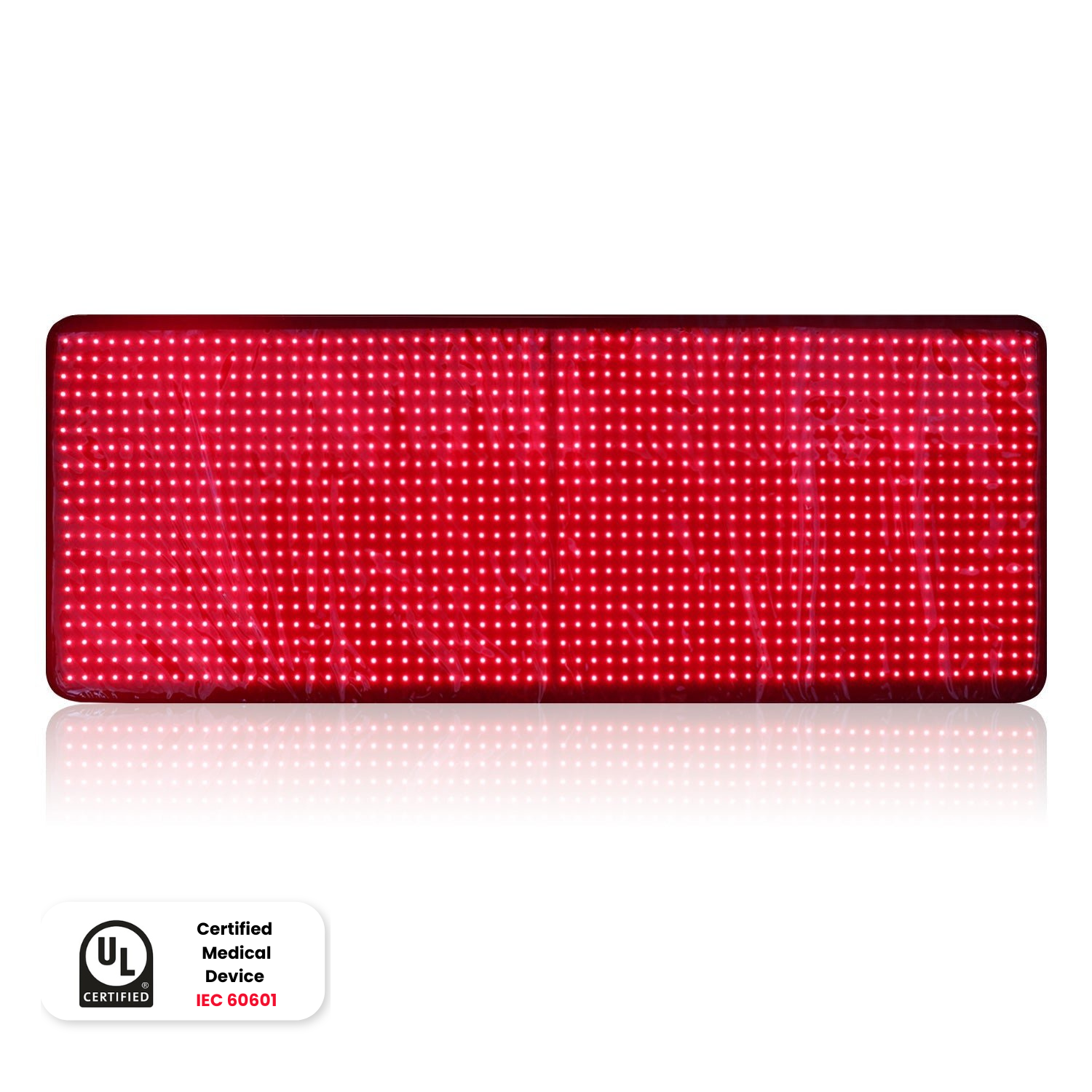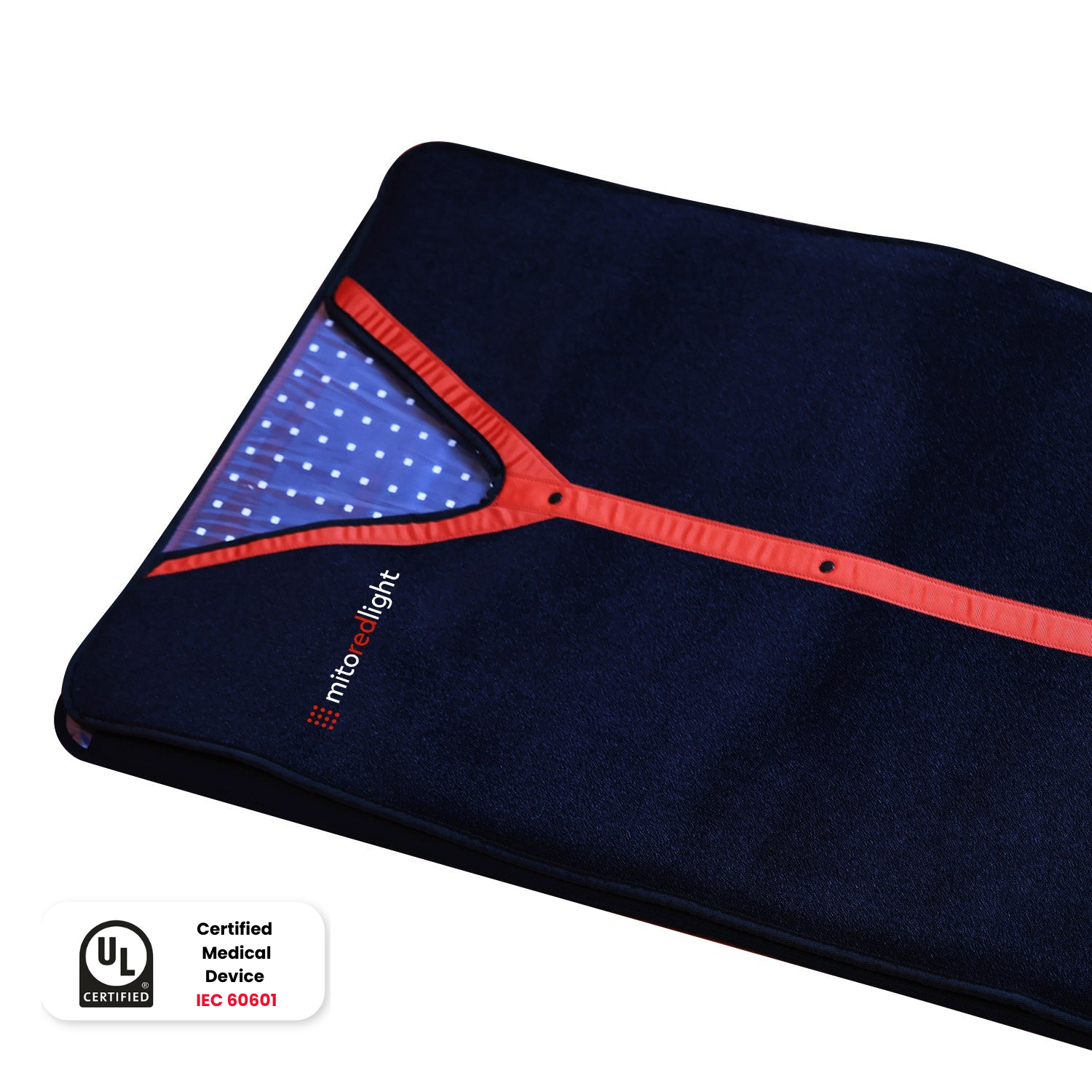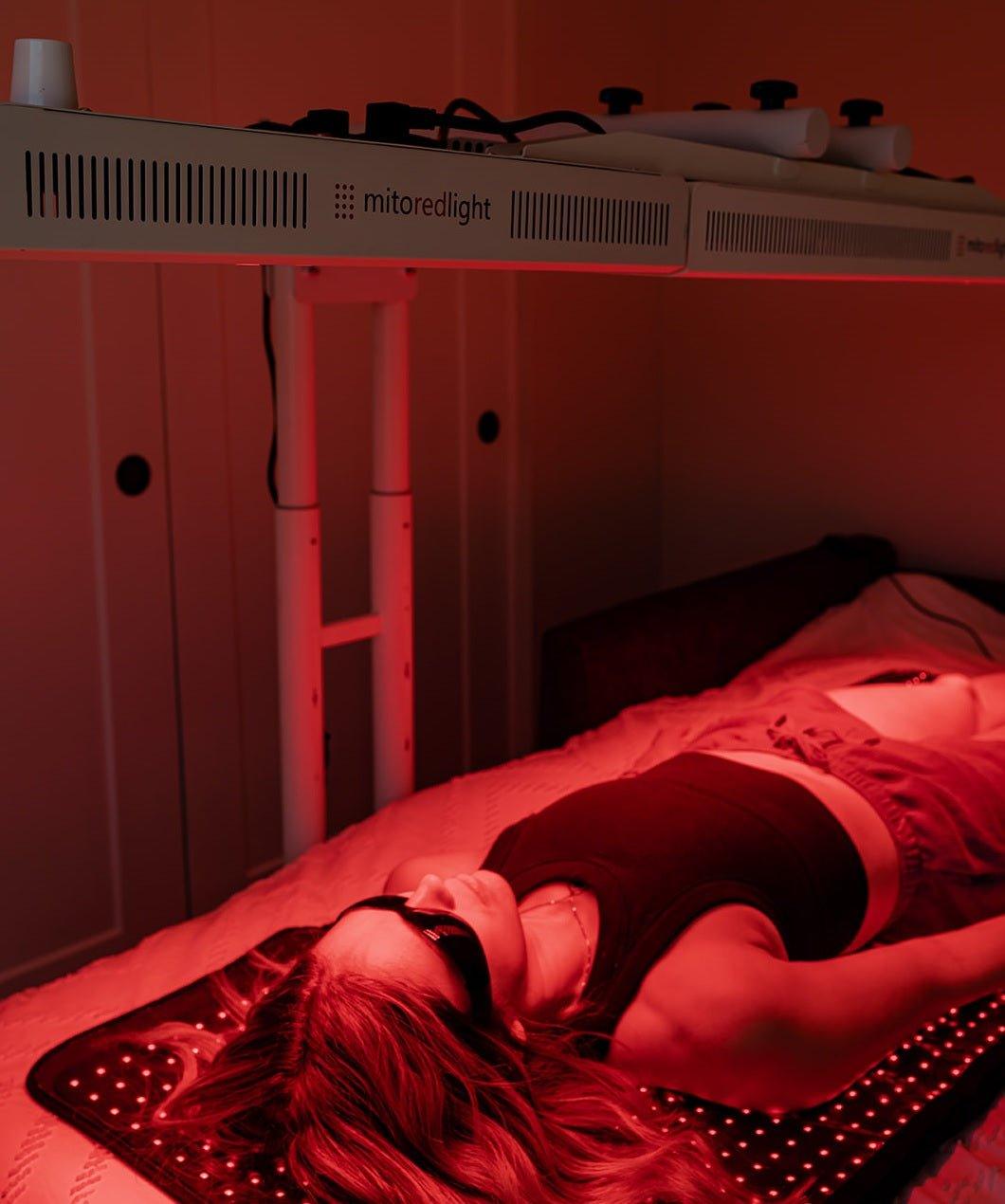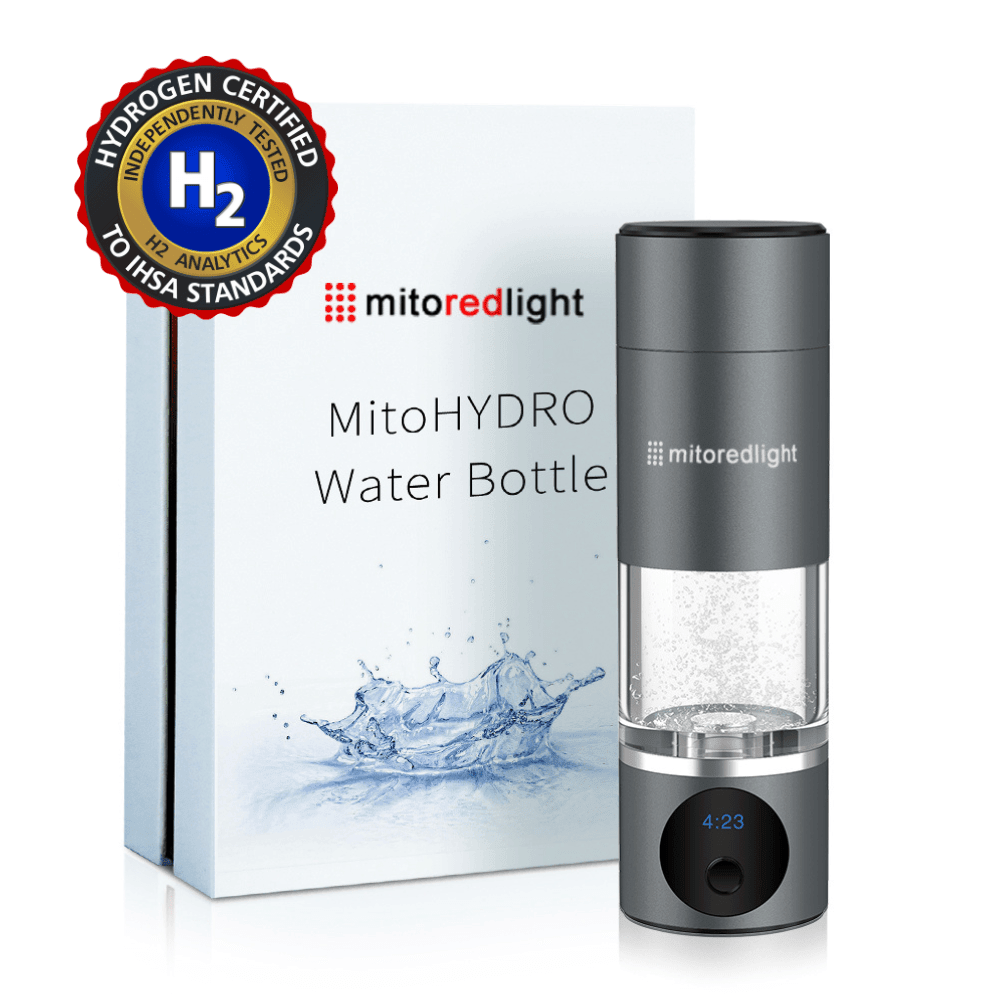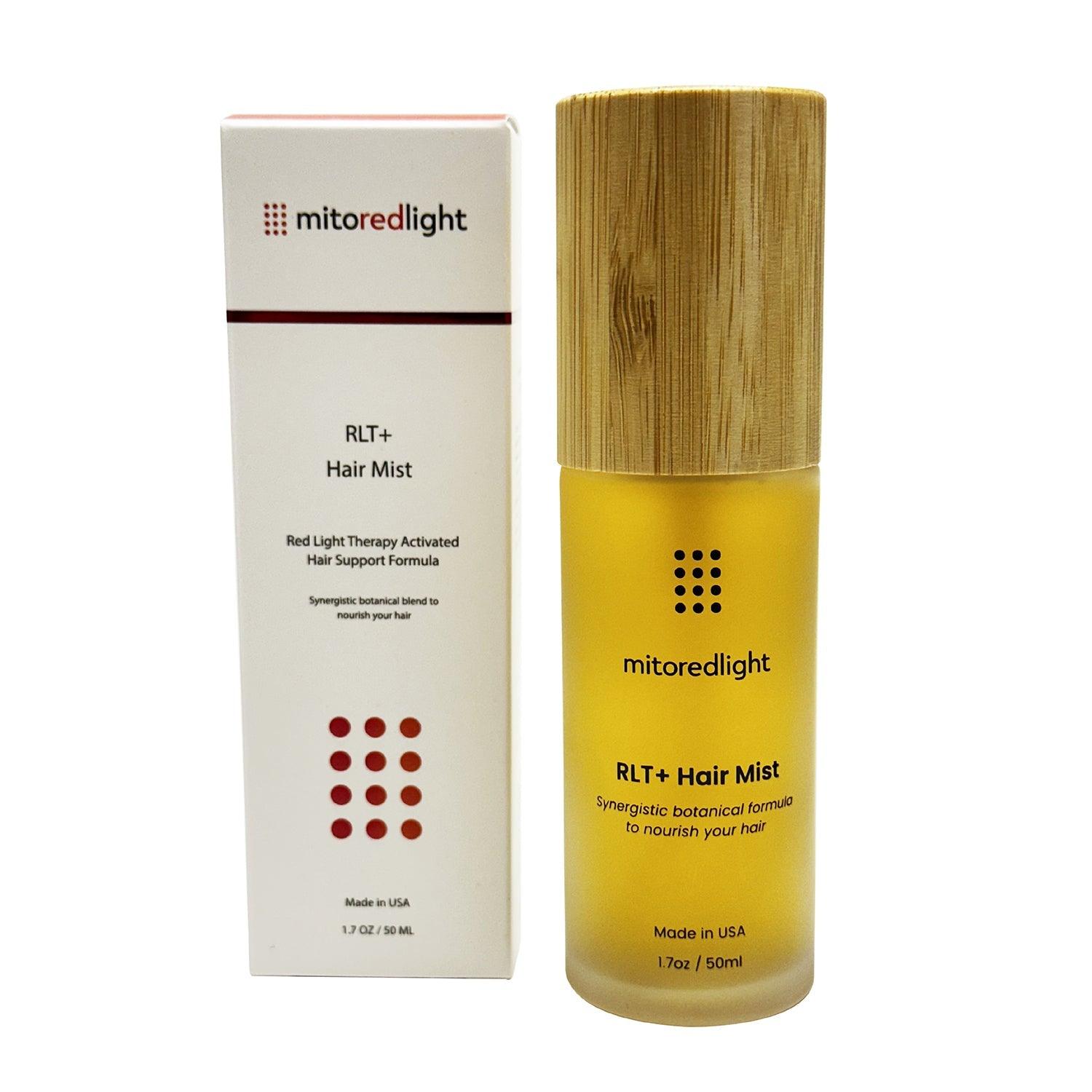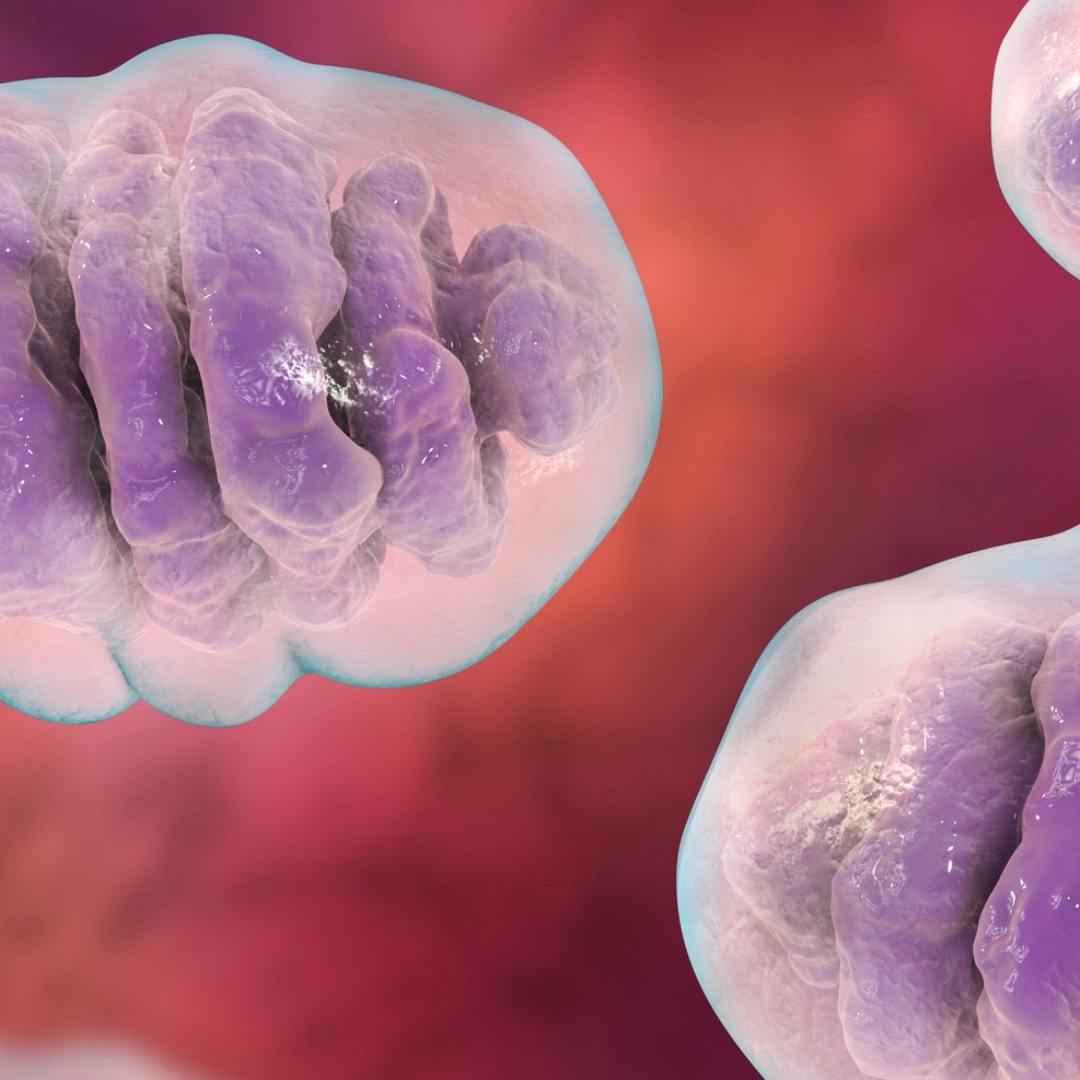DISCLAIMER: Mito Red Light devices are Class II wellness devices aimed at affecting the body through topical heating and supporting cellular function. The information provided in this article and on this site is for educational purposes only and is not intended to imply effectiveness of Mito Red Light devices for any specific application. The information provided in this article and on this site is not intended to diagnose, treat, cure, or prevent any disease, is not a substitute for consultation with a licensed medical provider and should not be construed as medical advice. Click here to read our article on potential contraindications of red light therapy..
Table of Contents
- What Does Collagen Do?
- How is Collagen Produced?
- Factors Affecting Collagen Levels
- Improving Collagen Levels
- Red light therapy
- Mito Red Light
Collagen is the most abundant protein in the human body and as such, plays an important role in multiple aspects of our health. Understanding what collagen does and how it is produced will help you to better understand how to promote healthy collagen levels in your body. There are also multiple things that you can do to promote the production of collagen and reduce its breakdown over time, promoting optimal overall health.
What Does Collagen Do?
Collagen is a connective molecule and has strong, elastic properties. Collagen provides the structure that connects cells and tissue to each other, making this protein an essential part of how our body functions. Because of how abundant collagen is and how it plays a role in almost every part of our body, attention to collagen health is important.
Skin Health
One of the areas of the body that is most visibly impacted by collagen is the skin. Collagen plays a vital role in connecting skin cells to each other and to the tissues underneath. The collagen helps the skin not to be loose and to stay “stretchy,” holding its shape. As collagen levels are reduced with aging, the skin becomes loose and develops wrinkles due to the loss of collagen.
Collagen also helps to provide volume and structure to the skin. The breakdown of collagen or inadequate amounts of collagen can lead to thinning of the skin and cause the skin to become more fragile. A decrease in the volume and structure of the skin can also contribute to the development of wrinkles and other signs of skin aging.
Wound Healing

Because collagen plays an important role in the structure of the skin and other body tissues, it is a vital part of wound healing. Collagen is added naturally by the body to a wound during the healing process to provide structure to the new cells being formed. Many wound products contain collagen, speeding the natural creation of collagen and promoting rapid wound healing.
Muscle Health
Collagen plays an important role in muscle health, helping to provide structure and connectivity for muscle cells. While collagen is outside of the muscle cells themselves, the improved connectivity between muscle cells can help to promote muscle health. Multiple studies have shown that supplementing collagen while working out increases strength and increases muscle size when compared to individuals not using collagen.
Bone health
Just as collagen provides the structure for skin cells and muscle cells, it also provides a structure for bones. Collage provides over 90% of the organic materials in bones, significantly influencing how they develop and are maintained. Studies show that supplementing with collagen increases bone density, helping them to be stronger and less susceptible to injury.
Joint Health
With collagen playing an important role in the health of both muscles and bones, it will come as no surprise that it also has a strong influence on joint health. Cartilage is a vital part of each joint and covers the ends of the bones in the joint. Cartilage helps bones to slide smoothly across each other in the joint, reducing friction and making movement of the joint more comfortable. Cartilage is primarily made out of collagen, making collagen an essential part of how joints function. Studies have shown that supplementing with collagen can improve joint function and comfort and can even improve diseased joints in people with osteoarthritis.
How is Collagen Produced?
Collagen is somewhat unique in that it is produced by the body’s cells but actually primarily exists outside of the cells. Collagen is produced in sections inside of the cells, then is assembled outside of the cells in parts, but it can also be obtained from outside sources.
Endogenous Collagen
Endogenous collagen production refers to production that occurs within the body itself. Endogenous collagen production is the most natural way to obtain collagen but can decrease as we age, decreasing at a rate of about 1% in the skin each year after age 20. Endogenous collagen production can be increased through dietary measures and red light therapy.
Exogenous Collagen
Exogenous collagen is collagen that is made outside of the body, then ingested. Exogenous collagen normally comes from animal sources, as plants do not produce collagen. While plants can produce nutrients that are important for promoting endogenous collagen production, these nutrients are not collagen itself.
Factors Affecting Collagen Levels
While there are ways to increase your collagen levels, an important consideration is avoiding damage to collagen or reduction of collagen levels in the first place. By protecting the collagen that your body is already producing, you will be able to better maintain healthy levels of collagen.
Smoking

Smoking is known to affect how your body produces collagen. Studies show that smoking can reduce collagen production by about 20%, causing premature aging that affects the skin and other parts of the body. With collagen production decreasing by about 1% per year after age 20, the effects of smoking can essentially speed the aging process of the skin by about 20 years!
The best way to avoid the effects that smoking has on collagen is to avoid smoking altogether. Smoking not only affects collagen but also significantly increases your risk of cancer and other diseases. By stopping smoking, you will improve not only your collagen levels but your overall health.
Sunlight
Sunlight can destroy collagen, making it important to protect your skin from excessive amounts of sunlight. The effects of sunlight on collagen are primarily caused by ultraviolet light, a high-energy form of light. This light breaks down collagen in the skin and can affect the quality of your skin. The good news is that ultraviolet light cannot typically get past your skin, meaning that it is unlikely to affect collagen in other parts of your body.
Protecting your body from sunlight includes avoiding excessive exposure to the sun or to any ultraviolet lights. The ultraviolet light used in tanning beds can also be a potentially harmful source of light. When exposed to the sun, you should use an effective sunscreen or wear clothing and a hat that will shield most of your skin from the sun.
Sugar

Sugar causes chemical changes in collagen that ultimately destroy its normal structure. Eating foods that are high in sugars, especially corn syrups, can reduce the amount of normal collagen in your body. This can affect collagen in more than just your skin, leading to joint and muscle problems in addition to premature skin aging.
Diseases
There are a group of diseases affecting connective tissues, many of which are related to the effects of the disease on collagen. Someone with these diseases should closely follow the prescribed medical treatments, as connective tissue diseases can cause serious health problems. The good news is that most of these diseases are relatively rare.
Age
As we age, our body’s ability to produce collagen slowly decreases. Many of the visible signs of aging, from wrinkled skin to brittle nails, to decreasing hair quality, are related to the decreases in collagen production. While there is, unfortunately, no way to stop from aging, there are steps that can be taken to reduce the impact that lower collagen levels can have on your body.
Improving Collagen Levels
Whether it is to help with joint pain, improve the appearance of your skin, or just improve your overall health, increasing the levels of collagen in your body can enhance your well-being. Whatever your reason for wanting to increase your collagen, there are multiple strategies that you can use to help.
Collagen Supplementation
You can supplement collagen in your diet; however, ingesting collagen as a supplement may only help to a certain extent. Collagen is made out of small molecules called amino acids, and most of the collagen you ingest is broken down into amino acids that are then absorbed by the body. There is some research, however, that suggests using collagen supplementation can help to stimulate an increase in collagen.
One important caveat with collagen supplementation is that there are skin creams that contain collagen. Collagen is not absorbed by the skin, and while the collagen in these creams might encourage people to buy them, it does not actually enter your skin.
Aloe Vera Gel
Aloe vera can help to stimulate the production of collagen in your skin, specifically. Gel made from Aloe vera contains molecules called sterols. These molecules absorb into the skin and have been shown by research to increase the production of collagen.
Diet
While avoiding sugar can help to protect the collagen you have, there are also many dietary supplements that you can use to enhance the body’s ability to make collagen. The most important nutrient to encourage collagen production is probably vitamin C, as vitamin C is a necessary component of collagen that your body is unable to make by itself. Some other dietary supplements that can help improve collagen production include:
- Hyaluronic acid
- Ginseng
- Antioxidants
- Retinol
Red light therapy
Red light therapy is a more recently available option for stimulating collagen production; however, it has already shown significant promise. Red light therapy involves using specific wavelengths of light that penetrate deep into body tissues but have less damaging energy than some of the more dangerous forms of light, such as ultraviolet light.
An article from Harvard Medical School explains that the specific wavelengths used during red light therapy are thought to act on cells in the skin called fibroblasts. These cells are responsible for producing collagen in the skin, and the stimulation of red light therapy has been shown to increase collagen levels in the skin.
Unlike some wavelengths of light, red light can penetrate deep below the skin, even potentially reaching your joints. Research shows that red light therapy can be effective in reducing joint pain. While it is unclear if the effects of red light on increasing collagen or on suppressing inflammation play a larger role in helping with joint pain, many people simply enjoy the improvements that they experience with using red light therapy for joint pain.
Mito Red Light
Mito Red Light provides a line of high-quality red light therapy products that are specifically designed to provide the wavelengths of light thought to stimulate collagen production. We welcome you to review our selection of high-quality products or to contact one of our expert representatives at +1 866-861-6486.







